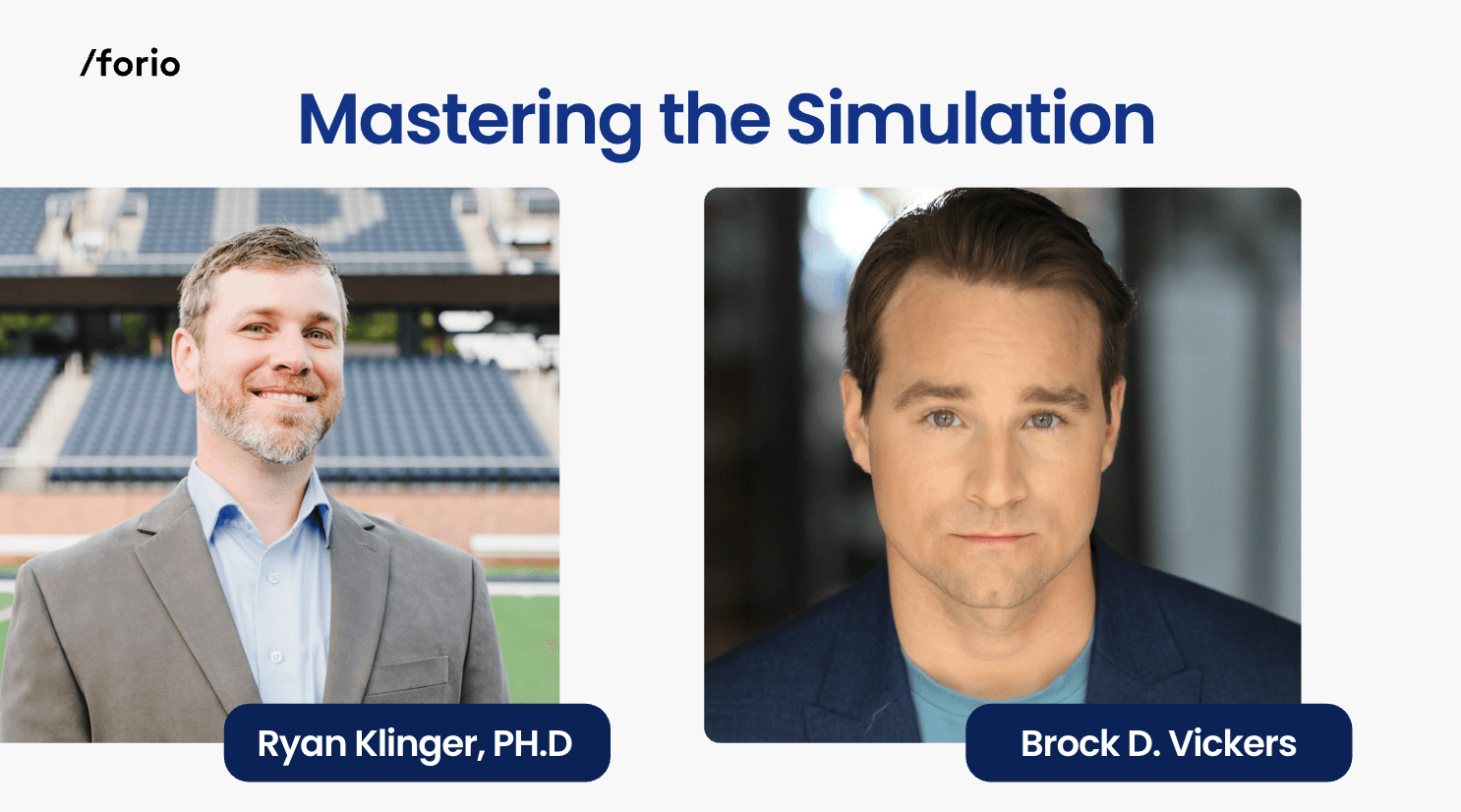Resources for Simulations and Experiential Learning
Explore insights, webinars, and videos from Forio and our partners at top universities and organizations. Learn how simulations accelerate leadership, strategy, and organizational change.
Featured Resources

Forio and Wharton Launch a New Era of Business Simulations with Google’s Gemini Veo
The Wharton School at the University of Pennsylvania updates its flagship MBA experience with the launch of WTLS v2, bringing AI-powered creative expression to its students.
Read Now

Mastering the Simulation Webinar
Learn how to effectively lead simulation-based learning experiences—from preparation through debrief. This webinar explores facilitation best practices, common pitfalls, and how to translate immersive simulations into real-world leadership insight.
Watch Now

What Makes a Simulation Work: The 4 Essentials of Engagement and Learning
Discover the core design principles that make learning simulations engaging, inclusive, and effective for global teams, classrooms, or leadership development.
Read Now